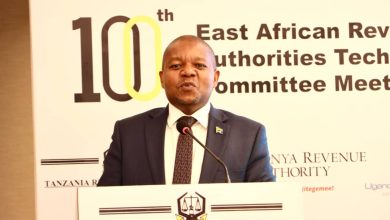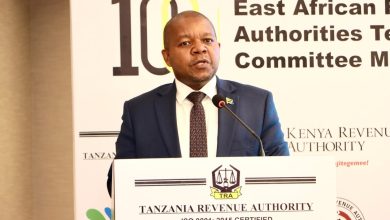Beyond the cheques – How dividends support national development

DAR ES SALAAM: AS Tanzania intensifies efforts to finance its development agenda through domestic resource mobilisation, the contribution of public institutions, particularly through non-tax revenue (NTR) such as dividends, statutory contributions and other remittances collected by the Office of the Treasury Registrar (OTR), has become a vital pillar of fiscal policy.
The government’s investment portfolio managed by the OTR in public entities and government minority interest companies currently totals 86.3tri/-, highlighting the immense national assets expected to generate meaningful financial returns.
Against this backdrop, tomorrow has been designated as Dividend Day, an initiative to recognise and energise the role of State Owned Enterprises (SOEs) and government minority-owned companies in strengthening national self-reliance through internally generated revenue.
However, Dividend Day is more than a ceremonial event. It serves as a fiscal checkpoint, a moment of accountability and a strategic reflection on the performance of governmentowned assets, not just in financial terms but as instruments for creating public value.
The strategic importance of Non-Tax Revenue According to the Treasury Registrar, Mr Nehemiah Mchechu, non-tax revenue is not just supplementary income.
It is a cornerstone of sustainable budget financing. These revenues, which flow directly into the Government Consolidated Fund, finance crucial sectors such as education, healthcare, water supply and infrastructure, without increasing national debt or burdening taxpayers.
This revenue stream, comprising dividends from profitable public enterprises, statutory contributions amounting to 15 per cent of gross revenues and other surplus remittances, ensures public institutions account for the value of resources they manage on behalf of Tanzanians.
By reducing dependence on foreign aid and commercial borrowing, NTR enhances fiscal autonomy, an essential asset for a country navigating complex global economic challenges while safeguarding policy independence.
Since President Samia Suluhu Hassan’s administration began, non-tax revenue collections have improved significantly.
Between the 2020/21 and 2023/24 financial years, NTR collected by the OTR rose from 637.67bn/- to 767.2bn/-, representing a 20.3 per cent increase.
This growth reflects improved financial performance by SOEs and minority government companies, alongside strengthened compliance enforcement.
“This financial year (2024/25), we anticipate even higher collections,” Mr Mchechu said, citing enhanced corporate governance and greater alignment of public institutions with national priorities.
To this end, the government has set an ambitious NTR collection target of 1.113tri/- for 2024/25.
Institutions yet to fulfill their remittance obligations have been urged to comply by June 30, 2025. By May this year, close to 900bn/- had already been remitted.
The dividend and NTR framework also play a crucial role in reforming public sector accountability. Institutions are now evaluated not only on service delivery but also on their financial contributions to the state, signalling a shift toward a performance-driven public enterprise model.
“Institutions must deliver on their mandates and demonstrate tangible financial returns,” Mr Mchechu said.
“Every shilling remitted translates into classroom desks, medicines at clinics or clean water in rural communities.”
The increasing number of contributing entities and rising remittance values highlight a growing culture of efficiency and results-based management of public resources.
Beyond its macroeconomic role, NTR directly supports social development by financing grassroots projects such as rural health centres, classrooms in underserved areas and expanded access to safe water.
ALSO READ: What will it take to reach the Sh1 trillion non-tax revenue target?
These tangible outcomes build public trust and confirm that national wealth is deployed transparently and equitably.
Director of Performance Management, Monitoring and Evaluation at the OTR, Ms Lightness Mauki notes that transparency in revenue collection and utilisation fosters civic confidence.
“Citizens begin to see themselves not just as beneficiaries but as stakeholders in public finance,” she said, adding that this openness strengthens participatory governance.
By encouraging public scrutiny of how dividends and contributions are used, the system reinforces democratic accountability and social cohesion.
Institutional reforms and technology integration To plug revenue leakages and boost compliance, the government has adopted digital platforms such as PlanRep and electronic payment systems across ministries and agencies.
These tools enhance traceability, reduce errors and ensure timely remittances.
Additionally, the OTR regularly audits SOEs and parastatals to identify revenue potential and monitor performance, ensuring no opportunity for public income is overlooked.
The legal foundation for NTR is robust. Dividends are collected under the Companies Act and Public Corporations Act, while the 15 per cent statutory contributions are mandated by the Public Finance Act.
Other revenue sources include 70 per cent of annual surpluses, loan repayments and telecom fees from the Telecom Traffic Monitoring System (TTMS).
These diversified streams form a sustainable, domestically mobilised resource base to finance national priorities without increasing taxes or external debt.
According to Director of Management Services at the OTR, Ms Neema Musomba the stakes are national.
“This is not just a financial transaction, it’s a patriotic duty,” she said.
“Every public institution and every company with government shares must contribute. That is how we secure Tanzania’s future.”
With Dividend Day 2025, the government not only celebrates achievements but reinforces the message that every shilling counts, every institution matters and every contribution shapes the country’s development trajectory





